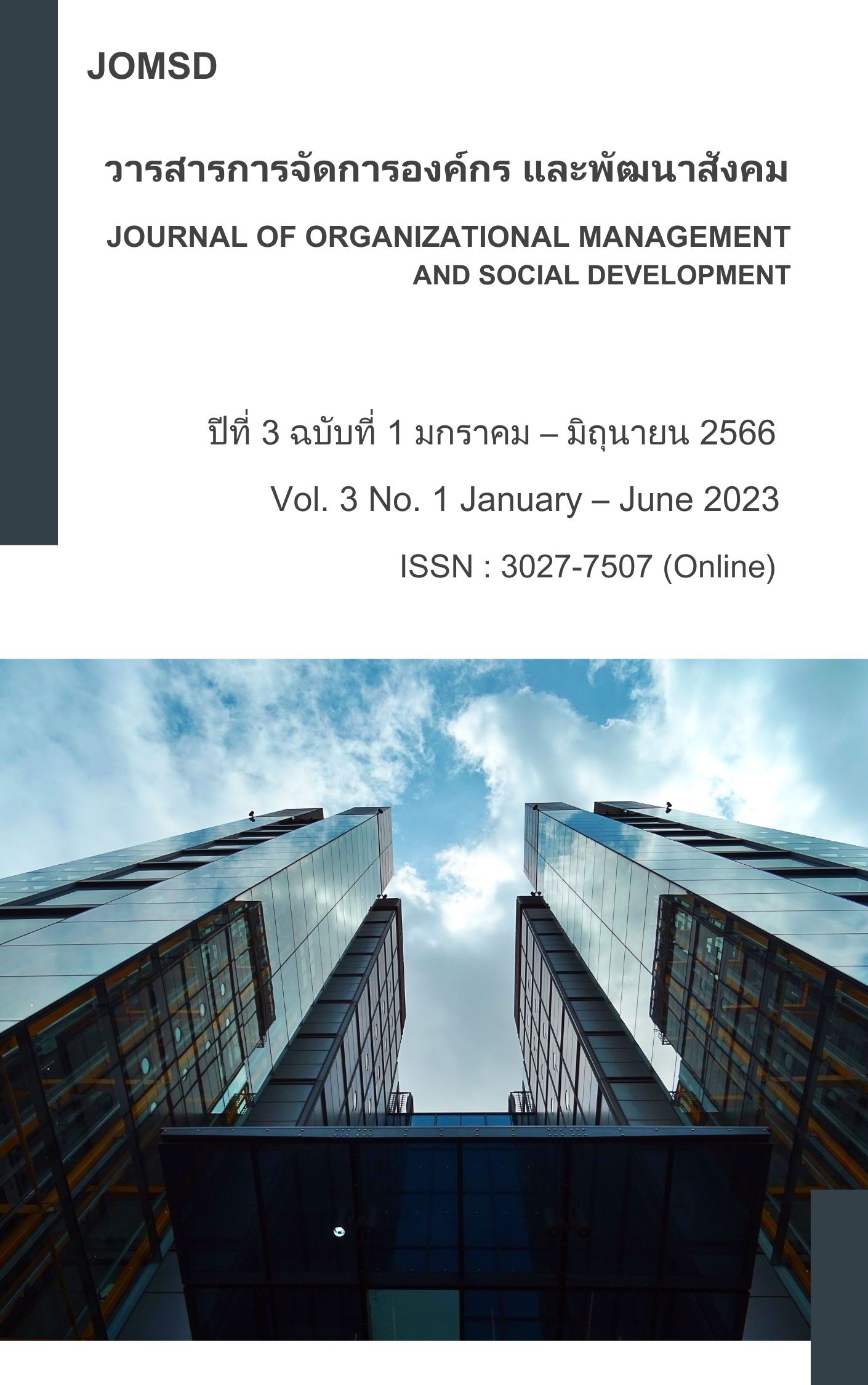A study of the local historical context in which the principles of Bowon were used for community development: a case study of the Ban Phluang Community, Ban Phluang Subdistrict, Prasat District, Surin Province
Main Article Content
Abstract
This research aims to study 1) to explore the local historical context of the Ban Phluang community, Ban Phluang Subdistrict, Prasat District, Surin Province; 2) to study the application of Bowon principles to community development, to be a historical tourism community. This study is qualitative research. Using the study method by document research. and interviews with 15 key informants obtained using purposive sampling. The research findings 1) Local historical context of Ban Phluang community. It is a community with an ancient site, namely Prasat Ban Phluang. Located in the middle of the village It is revered and worshiped by the villagers in the community. In the past, the area where Ban Phluang was located was a dense forest with many types of wild animals, both small and large. and is an area that is fertile It is very suitable for living. After that, there were immigrants who came to live in the said area. Houses were established until it became the present Ban Phluang community. Ban Phluang Castle is a place to learn about history. There are people who are interested in coming to study and gain knowledge widely. Until making the Ban Phluang community a community of historical tourism. 2) Using the principles of "Bowon" to develop the community into a historical tourism community, it was found that the principles of "Bowon" can be used to develop tourism in many forms through the participation of people and various agencies in the community to help manage available resources for maximum benefit. Houses, temples, and schools must be areas that can be a source of learning and provide historical information about the community, then they could become a knowledge center for those interested in coming to study and gain knowledge.
Article Details
References
ประมูล ศรีชนะ. (2561). รูปแบบการบริหารและการจัดการเรียนรู้แบบมีส่วนร่วมของชุมชนวิชาประวัติศาสตร์ท้องถิ่น เพื่อสร้างจิตสำนึกรักษ์ท้องถิ่นของโรงเรียนขนาดเล็ก. (ปรัชญาดุษฎีบัณฑิต, มหาวิทยาลัยราชภัฏมหาสารคาม).
พงศ์สวัสดิ์ ราชจันทร์. (2565). ประวัติศาสตร์คัดสรร : ความเชื่อและศรัทธาที่มีต่อพญานาคราช ในบริบทท้องถิ่นอีสาน. Journal of Roi Kaensarn Academi, 7(1), 387-403.
พระณัฏฐ์ธนชัย จันดาผล, พระพรสวรรค์ ใจตรง, พระกัญจน์ แสงรุ่ง และพระจรัญ สุวโจ. (2563). การศึกษาการขับเคลื่อนชุมชนคุณธรรมด้วยพลังบวรของวัดจำปา อำเภอกันทรารมย์ จังหวัดศรีสะเกษ. วารสาร มจร อุบลปริทรรศน์, 5(1), 183-193.
พระอธิการโสภณ ปิยธมฺโม, เอกราช โฆษิตพิมานเวช และพระมหาพิสิฐ วิสิฏฐปญฺโญ. (2565). พลังบวร : ชุมชนคุณธรรม ลานธรรม ลานวิถีไทย. วารสารสังคมศาสตร์ปัญญาพัฒน์, 4(3), 263-274.
สุทัศน์ ประทุมแก้ว, พระครูปริยัติคณานุรักษ์ ศรีสมงาม, พระวีระพงษ์ โคษา และจักร์กฤษ ทองมี, 2564.พลังบวรในการขับเคลื่อนชุมชนคุณธรรมเชิงพุทธในสังคมไทย. วารสารวิชาการ มจร บุรีรัมย์, 6(2), 346-359.
องค์การบริหารส่วนตำบลบ้านพลวง. (2565). ความเป็นมาของบ้านพลวง. สืบค้นจาก https://banpluang.go.th/about/.
Digitalschool. (2565). ปัญหาสังคม. สืบค้นจาก http://www.digitalschool.club/digitalschool/health4-6/health5_1/lesson3/3_14.php.

